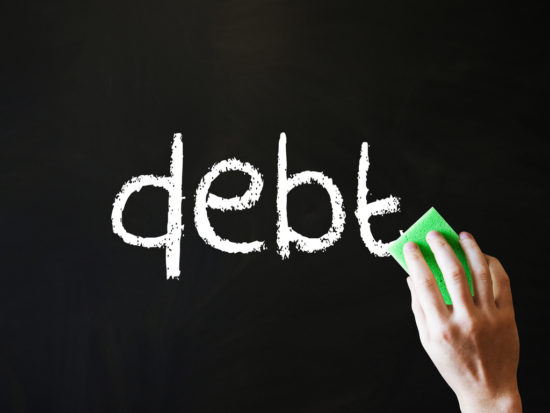
Get Used to Balancing a Budget
The first step in managing your personal finances is to create and balance a budget. This is not only vital for people who have debt issues, it’s a financial foundation for anyone with budgetary goals. If you get in the habit of keeping track of your incoming and outgoing expenses, you can save money for financial benchmarks, whether that’s paying off debts, buying a house or starting a business.
Balancing a budget is easier to start than you might think, even though only a third of Americans have household budgets. All you need is an accurate representation of all of your monthly expenses and your income. If you have a steady income, you can start there. Here are the steps you need to balance a budget:
Take your salary or hourly rate and calculate how much you earn each month. It’s important to work with actually money here, not expected windfalls or potential investment returns. To accurately balance a budget, you need to use your real money.
If you have quarterly or annual incomes, like stock dividends, you can spread that money out over each month or set it aside as savings.
When you have an accurate picture of your incoming money, you can begin to calculate monthly expenses.
- Start with fixed amounts like internet and cable bills, rent, mortgage payments, loan payments and credit card payments. List them all on a spreadsheet.
- Then calculate payments that can change like groceries, utilities, and miscellaneous purchases. Looking at the items on your credit card bill is a great way to see where you tend to spend money.
- Add all of your expenses together and subtract them from your income. If you have a positive number you have a balanced budget and you can choose to take the extra money and put it toward your financial goals like emergency funds, retirement savings or putting off debt.
- If you want more savings or if you are left with a negative number, go back and look at the variable expenses. Look at ways you might be able to spend less.
Adopting a mindset of reconciling all of your purchases with your budget is a great way to be proactive about paying off your debts. Focus on limiting your expenses and putting the money you save toward paying off your debts faster.
Manage Overspending Tendencies
If by creating a budget you realize you have a tendency to overspend, there are a few ways you can keep yourself accountable. It sounds like a cliche, realizing you have a problem with spending too much is a great first step. Many people who overspend, don’t realize they are doing it and it may be that you just need to remember to watch yourself when you are shopping. Here are some other ways to manage your overspending:
- Pay with cash. Credit and debit cards make spending easy and out of sight. You may not realize how much you spend until you receive your bill. If you use cash, you can see the money leaving your wallet and when you run out, you know when you need to stop spending.
- Limit your number of credit cards. If you have too many credit cards, it can be difficult to keep track of how much you are spending. If you have a serious problem with spending, it might be best to get rid of all of your credit cards.
- Find someone to keep you accountable. A friend, spouse or family member that knows you want to limit your spending can help keep you from going overboard. Ask them to check up on your shopping and spending week to week.
Consider a Personal Loan
A personal loan is a great way to consolidate debt into one monthly payment and generally offer considerably lower interest rates than credit cards. Take a look at some of the personal loan options that are out there, and be sure to choose one that is ideal for paying off debts.
Get a Side Job
There are a number of benefits to having a side job, not the least of which is the extra money. Even if you are making enough money with your main job, a side job can give you the means to really bolster the payments you are making toward your debts. You can even do some freelance work so you can take on extra jobs when you have time and have no obligations when you don’t.
Side jobs are also a great way to diversify the type of work you do and the experience you accumulate. Having more than one type of work experience can be good if you want to find a new job in a different area of expertise.
Side hustles can also open new doors and opportunities. You may find that your side job is more interesting to you and new business paths can open up.
Do you have any tips on how to manage debt? Share your thoughts below.
Photo: Flickr: Images Money
Comments